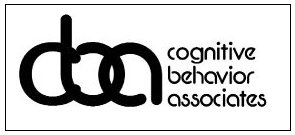In a world built on the concept of form over substance, it is difficult for literally everyone to remember the real purpose of physical health and fitness. However, this problem takes on new weight when it comes to people who suffer from body dysmorphia. Body dysmorphic disorder is a clinical condition that applies to individuals who focus on their perceived physical flaws. These flaws are either exaggerated or imagined. But the individual remains so bothered by them that it interferes with their daily lives. These same individuals also likely experience depression and anxiety as a result of their condition. Below we collected some tips for helping someone with body dysmorphia.
Unfortunately, many people with body dysmorphia are completely unaware that their obsession is actually a clinical condition. That can make it difficult to help them but not impossible. If someone close to you currently deals with body dysmorphia, then you can generally help. The best methods remain simple:
- Giving them the space to talk freely
- Providing information on clinical resources (when they feel most receptive to offers of help)
With that being said, we need to clearly understand what body dysmorphia is. And we should look at the resources available before you have that conversation.
Identifying Body Dysmorphia
It cannot be emphasized enough that body dysmorphia is a medical condition. If you have a loved one who clearly engages in self-defeating behaviors as a result of their focus on physical attributes to an extent that it negatively impacts their social or professional life, then they may have a form of body-dysmorphia. The easiest way to tell for sure is to ask yourself two questions.
- Is the person seemingly overwhelmed by thoughts surrounding these flaws?
- Are the flaws actually minor or entirely unnoticeable?
If the answer to both questions is “yes,” then body dysmorphia is likely at play. However, if the answer to the first question is “yes” and the answer to the second question is “no,” then your loved one may still require help to treat another clinical condition. Once you’ve realized that this person needs help, it’s vitally important that you talk to them and convince them to receive body dysmorphia treatment.
Body Dysmorphia Treatment
Body dysmorphia exists as a complex issue that can appear in a number of forms. Generally speaking, it comes down to an unhealthy obsession with physical flaws. These flaws may be minor or completely absent. But that does not lessen their impact. As a result, receiving cognitive behavioral therapy in LA is one of the most effective treatment types due to its ability to target the very ideas and triggers that spur on the condition.
Unlike other treatment types, cognitive behavioral therapy does not teach avoidance. Avoidance can intensify the individual’s response when faced with a trigger, such as a mirror or social event. Instead, cognitive behavioral therapy uses a three-pronged approach to help people tackle their body dysmorphic disorder.
Exposure
Rather than encouraging avoidance behavior, clinicians using cognitive behavioral therapy will gradually introduce triggers to patients. A therapist carefully monitors these exposure experiences so that the patient and clinical expert can talk through the patient’s thought process. This can help challenge the patient’s negative thoughts while reducing the anxiety associated with the trigger.
Acceptance
Mindfulness remains a vital tool for treating body dysmorphia. The condition stays resilient against logic. So in some cases it proves best to teach the patient to accept their body as they see it. By learning to accept their body in its current condition, patients can become more aware of the distance between their negative thoughts and the reality of their physical form over time.
Family Inclusion
Close family members often aid with cognitive behavioral therapy. Sadly, our family members’ best intentions can be harmful for people dealing with body dysmorphia. The seemingly empty assurances and comparisons can actively exacerbate the condition, so it is helpful to include family members in the process of learning about negative thought processes and acceptance.
Ultimately, you can encourage your loved one to seek help. Then your local cognitive behavioral therapist will do everything they can to help them become healthier and happier.

